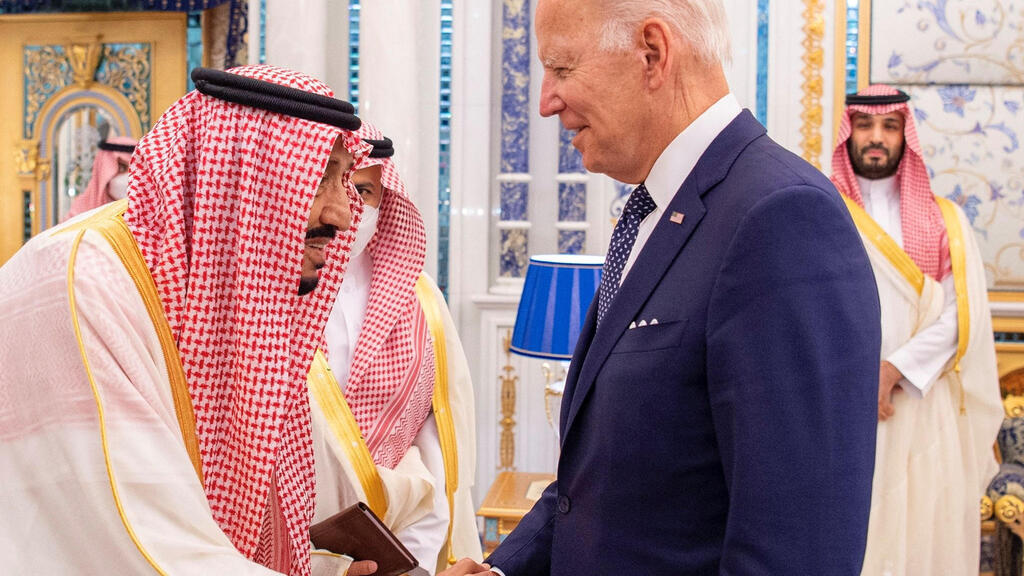Getting your Trinity Audio player ready...
The assassination of journalist Jamal Khashoggi in October 2018 sent shockwaves around the globe, igniting widespread outrage and raising critical questions about human rights and press freedom. Khashoggi, a Saudi national and a prominent critic of the Saudi government, was killed in the Saudi consulate in Istanbul.
The brutality of his murder drew condemnation from various governments, human rights organizations, and media outlets worldwide. Despite the outcry, the U.S. government's response has often been perceived as muted, reflecting a complex interplay of strategic interests and political dynamics.
The U.S. has a long-standing partnership with Saudi Arabia, rooted in mutual interests that include counterterrorism cooperation and energy security. This strategic alliance has historically taken precedence over human rights concerns, leading to a cautious and often tepid approach to condemning the Saudi regime for its abuses.
The reliance on Saudi Arabia as a key ally in a turbulent region complicates the U.S. position. While there is recognition of the need to address human rights violations, the priority placed on national security and economic interests often overshadows these concerns.
One of the primary factors contributing to this muted response is Saudi Arabia’s role as a significant buyer of U.S. arms. The defense industry in the U.S. benefits tremendously from this relationship, which creates a powerful incentive to maintain favorable ties with the Saudi government. Criticizing the Saudi regime could jeopardize lucrative military contracts, leading to a reluctance among U.S. officials to speak out against human rights abuses, including Khashoggi's murder. This economic interdependence places substantial pressure on the U.S. to temper its critiques of Saudi Arabia, despite the moral imperative to hold the regime accountable.
The political landscape in the U.S. is also polarized, with differing views on how to engage with Saudi Arabia complicating the response to Khashoggi’s assassination. Some factions advocate for a stronger stance against human rights violations, while others emphasize the importance of maintaining strategic partnerships. This division often results in inconsistent messaging and a lack of cohesive action regarding Khashoggi’s murder, undermining efforts to present a united front on human rights issues.
Moreover, there are legitimate concerns that a strong backlash against Saudi Arabia could destabilize the already volatile Middle East. The U.S. fears that aggressive condemnation might exacerbate existing conflicts or lead to unintended consequences, such as increased hostility from the Saudi government. Consequently, a measured approach is often adopted, prioritizing diplomatic relations over accountability for Khashoggi's murder. This cautious strategy, however, risks sending a message that human rights violations can go unpunished, which could embolden authoritarian regimes elsewhere.
In addition to these geopolitical considerations, pressing challenges such as climate change, economic instability, and international tensions often overshadow human rights issues on the U.S. agenda. This lack of focus can result in a prolonged silence on critical cases like Khashoggi's, as the administration grapples with a multitude of urgent concerns. Nonetheless, addressing Khashoggi’s murder is essential not only to reaffirm the U.S. commitment to human rights but also to protect the freedoms of journalists and dissenters globally.
Holding perpetrators accountable is vital for justice and deterrence. A failure to act risks signaling that authoritarian regimes can operate with impunity, potentially encouraging further abuses of power. By ignoring Khashoggi’s case, the U.S. undermines its moral authority as a leader in promoting democracy and human rights. As authoritarianism rises worldwide, it is crucial for the U.S. to stand firm against such trends and demonstrate its commitment to the values it espouses.
Highlighting the Khashoggi case can serve as a catalyst for necessary reforms within Saudi Arabia. By applying pressure on the Saudi government, the U.S. could encourage a dialogue about human rights and governance, contributing to a more just society. The case has already galvanized public opinion and activism around the world, fostering greater demands for accountability and reform. Activists and human rights organizations have utilized Khashoggi’s story to mobilize support for the protection of journalists and to highlight the broader struggle for freedom and democracy.
 Amine Ayoub
Amine Ayoub In conclusion, the silence of the U.S. regarding the Khashoggi killing reflects a complex interplay of strategic interests and domestic politics. However, it is imperative to address this issue to uphold human rights, ensure accountability, and restore U.S. credibility on the global stage. The fight for justice in Khashoggi’s case is not merely about one individual; it is emblematic of the broader struggle for freedom and democracy worldwide. The world is watching, and the U.S. must rise to the occasion, reaffirming its commitment to protecting the rights of individuals and promoting a global environment where dissent is not met with violence.
Amine Ayoub is an economic and policy consultant who lives in Morocco
Get the Ynetnews app on your smartphone:



